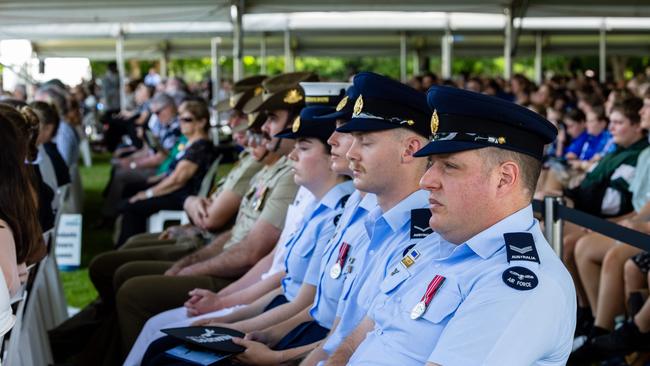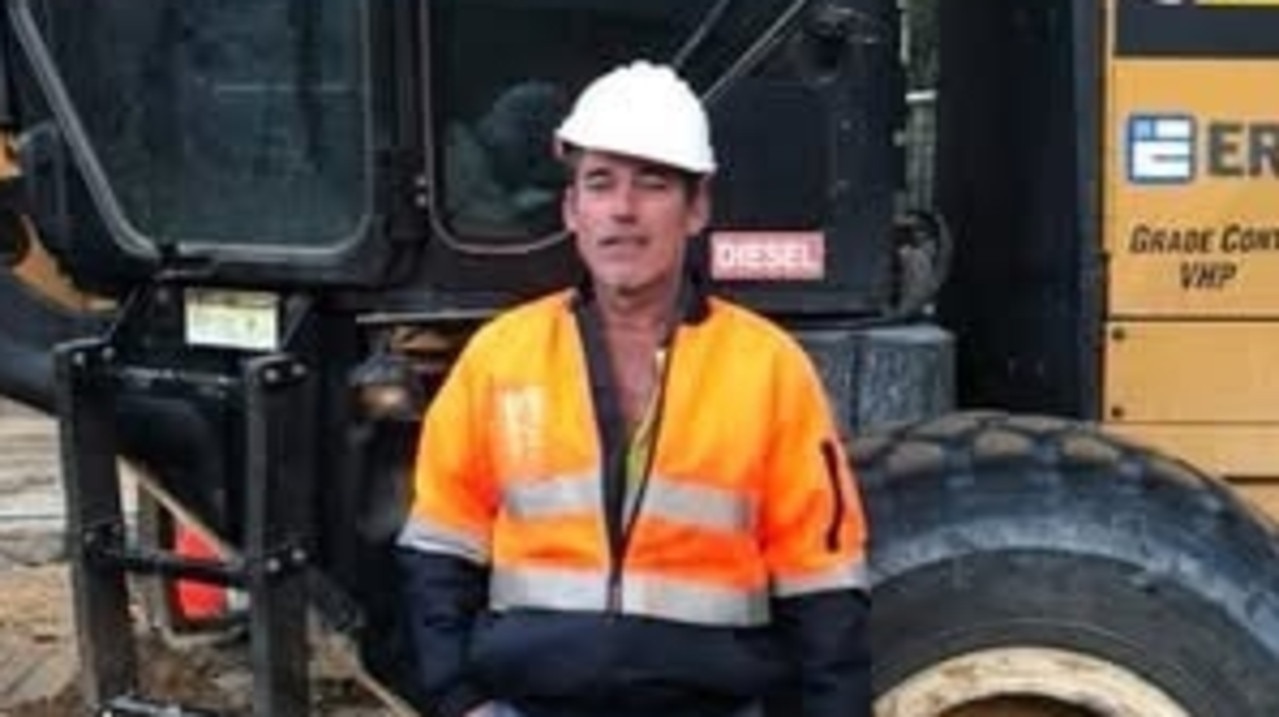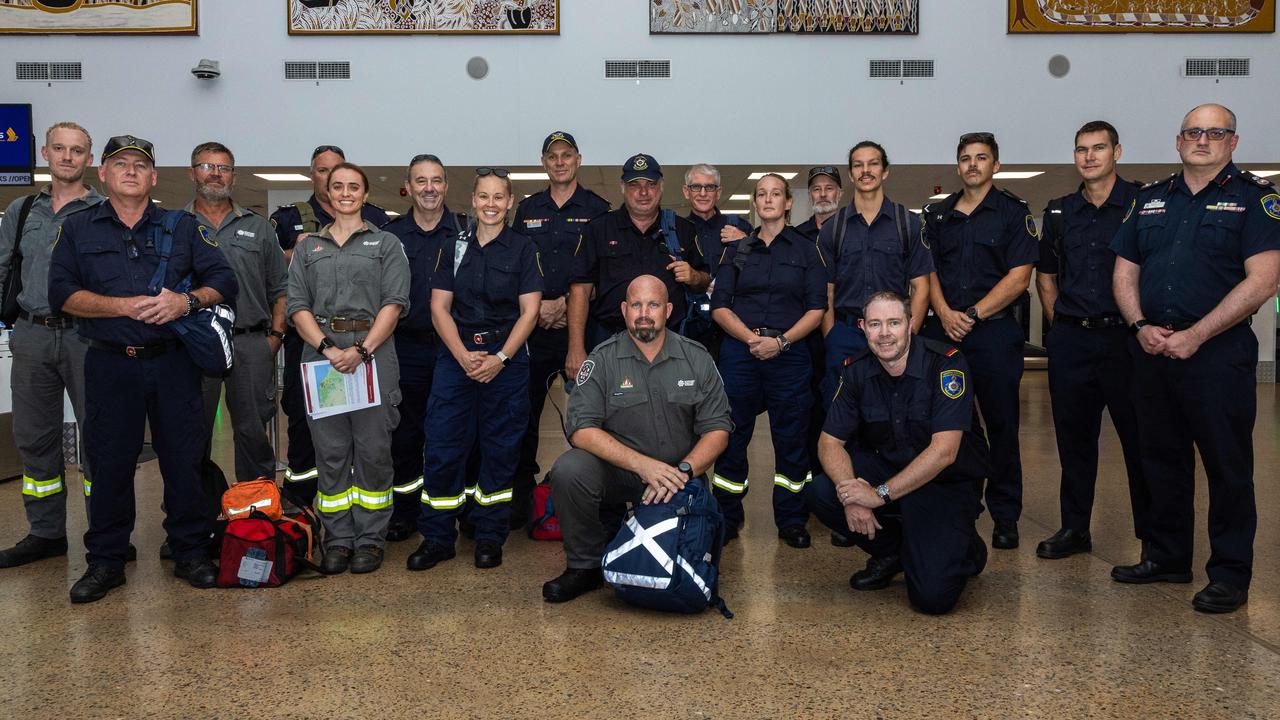Thousands mark 83rd anniverary of Bombing of Darwin
More than 1000 gathered to honour the men and women who fought, suffered and sacrificed when Japanese forces mounted two air raids on Darwin on February 19, 1942 - including a survivor.
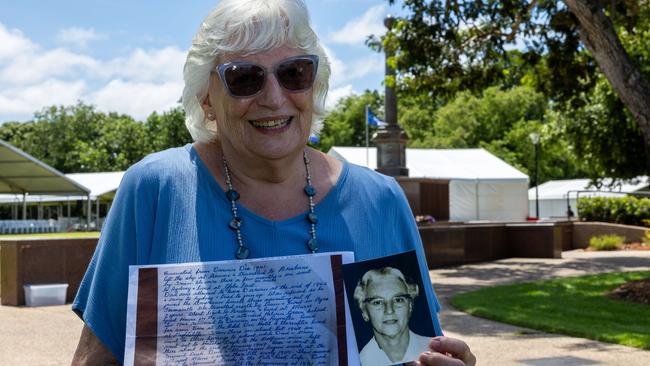
Jill Flett was just eight months old when she was evacuated from Darwin just days before what remains the largest single attack ever mounted by a foreign power on Australia.
Eighty-three years later, she travelled with her family from Melbourne to commemorate the Bombing of Darwin at a ceremony on Wednesday.
More than 1000 gathered to honour the men and women who fought, suffered and sacrificed when Japanese forces mounted two air raids on Darwin on February 19, 1942.
It was an event that changed the city, the nation, and Jill’s family forever.
Her father, Arthur Charles Bland, was a WWI veteran, and remained in Darwin as an essential worker for the navy.
Jill, her mother Mary Bland and her six-year-old sister joined 2000 women and children ordered to flee the city – a direction then Prime Minister John Curtin gave soon after the attacks on Pearl Harbour.
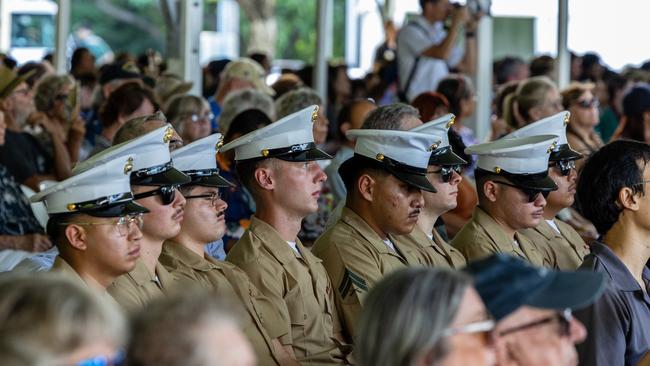
Mary was only allowed to take a single bag of belongings – no more than 16kg – and the ship they were on had not been cleaned or restocked in the race to evacuate.
“She described it as a nightmare trip,” Jill’s son Russell Fleet said.
“On the journey, my grandmother used to tell me, that the water was brackish, it was very hard to drink, it was very hot.”
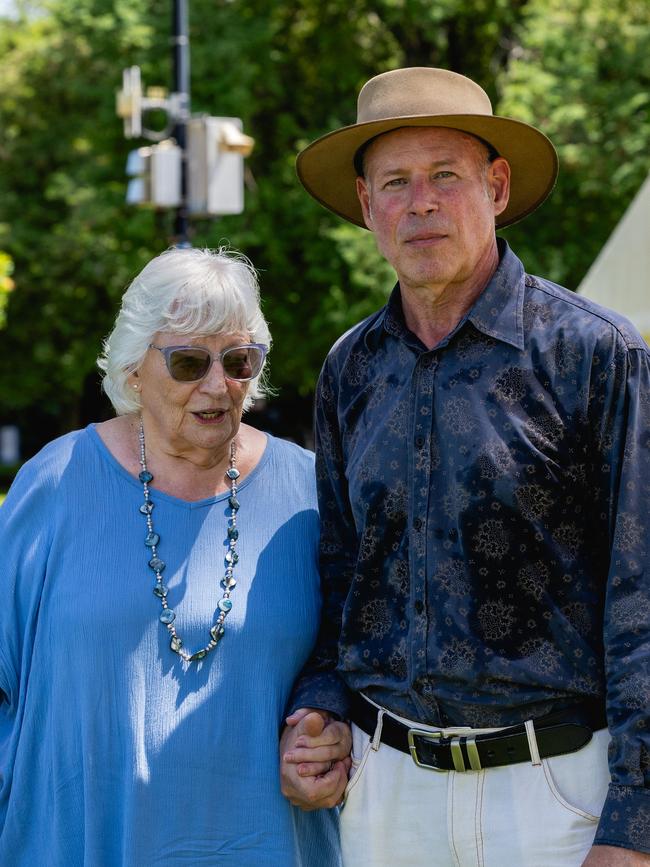
Thankfully, Mary had powdered milk to feed baby Jill, and the captain was resourceful in sourcing fresh meat.
“They stopped at Thursday Island and the captain ordered some of his crew to go ashore with rifles and shoot wild turkey in order to have Christmas dinner,” Russell said.
“They also picked up a whole bunch more people there who were carrying aboard everything they could with them – sewing machines, tea chests, camphor wood boxes – so the people who were already on board were a little indignant of the inconsistency when they’d had to leave their entire lives behind.”
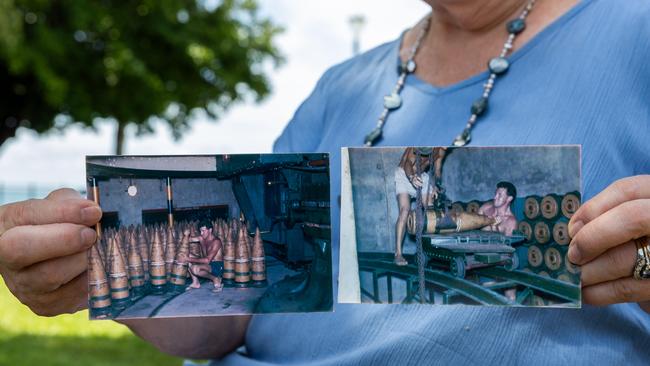
The ship, SS Zealandia, landed in Bowen, Queensland, and Jill’s family returned to Darwin after the war ended in 1946.
Jill moved interstate after attending school in the Territory, and said it was special to be able to return north to commemorate the event.
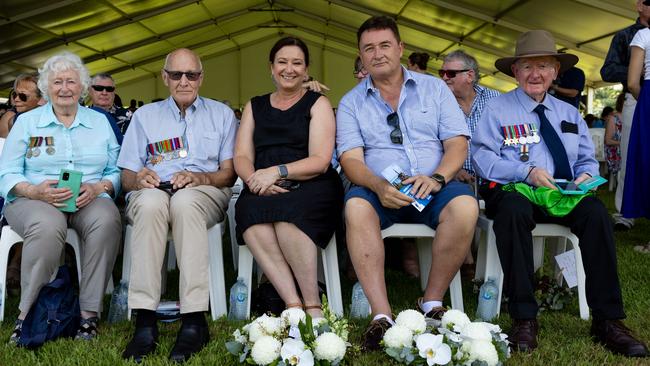
City of Darwin Mayor Kon Vatskalis said the Bombing of Darwin should be a public holiday, and the event did not get the recognition it deserved.
“I come from a country (Greece) where we value our history,” he said.
“If it was happening in my mother country, there would be a public holiday.
“There’s a horse race that stops the nation, and this (Bombing of Darwin) is an anniversary that should stop a nation, but down south nothing happens.
“Let’s actually tell Australian people about our real history – and the bombing of Darwin is the real history of modern Australia … we need to learn from the mistakes of the past to plan for the future.”
Deputy Prime Minister and Defence Minister Richard Marles said the evolution of Australia-Japan relations from “determined foes” to “the most committed friends” was a “remarkable” story that highlighted the Top End’s strategic significance.
“Then, as now, Darwin lay deeply embedded in Australia’s strategic heart,” he said.
“On this day, when the war came to Australia, our nation owed Darwin an enormous debt of gratitude, and today, as we look upon an increasingly troubled world, in the strongest possible terms, that same debt of gratitude remains.”
Shadow Minister for Veterans’ Affairs Barnaby Joyce said the attack on the “Australian way of life” suffered in 1942 remained an “absolutely and utterly real” threat today.
“Australia has to prepare once more, we have to steel ourselves, we have to be ready,” Mr Joyce said.
“Otherwise – whether it’s Larrakia nation, whether it’s Northern Territory, whether it’s Darwin, whether it’s Australia – it will be lost, and when it is lost, it will never be regained again.”
Originally published as Thousands mark 83rd anniverary of Bombing of Darwin


